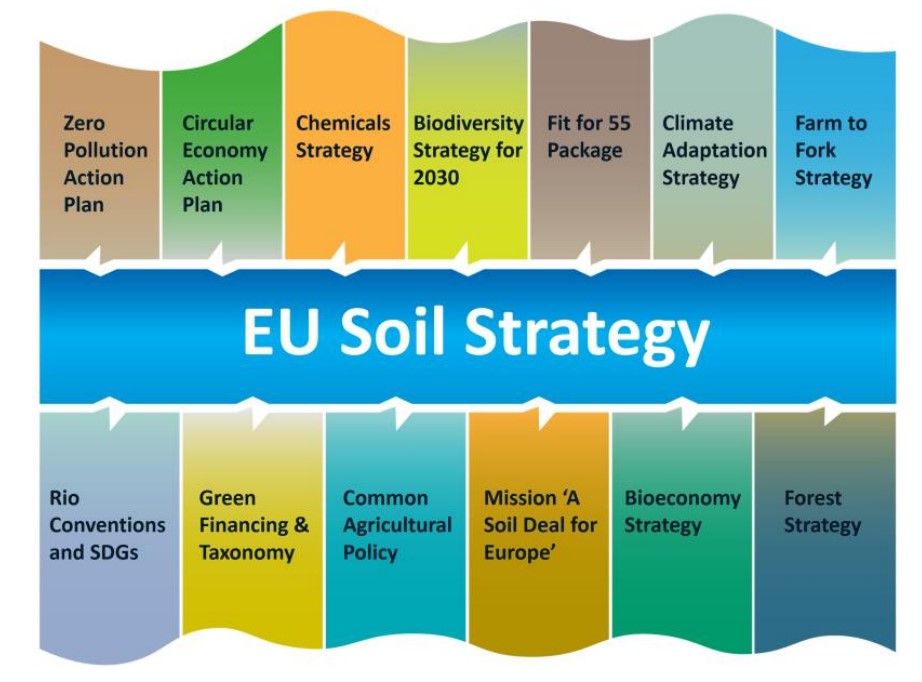European Commission | Source | Download |
Introduction: Soil, often overlooked, is a fundamental resource crucial for food production, biodiversity, and climate regulation. Despite its importance, European soils face significant degradation, threatening our ecosystems and economy. Recognizing this urgency, the EU has developed a Soil Strategy for 2030 to safeguard and enhance soil health.
Objectives: The strategy aims to achieve healthy soils by 2050 through a comprehensive approach. It targets combating desertification, restoring degraded land, reducing greenhouse gas emissions, improving water quality, and minimizing nutrient and chemical pesticide usage by 2030. Long-term goals include achieving no net land take, reducing soil pollution, and attaining climate neutrality.
Key Solutions
- Climate Change Mitigation and Adaptation: Healthy soils play a vital role in carbon sequestration and water retention, making them essential for mitigating and adapting to climate change.
- Circular Economy: Soil is integral to a resource-efficient circular economy, recycling nutrients and filtering pollutants. Prioritizing circular land use over development helps limit soil sealing and land take.
- Biodiversity and Water Resources: Healthy soils support diverse ecosystems and ensure clean water sources, contributing to both environmental and human health.
Prevention and Restoration: The strategy emphasizes sustainable soil management practices, including agroecological principles, cover cropping, and reduced tillage. It promotes coordinated efforts at all levels to implement these practices effectively, with a focus on advisory services, CAP conditionality, and forest management.
Knowledge and Innovation: Enhanced soil monitoring, research, and digital technologies will provide critical data and insights for informed decision-making. The EU plans to establish an integrated soil monitoring system and invest in research initiatives like the Horizon Europe Mission 'A Soil Deal for Europe.'
Enabling Transition: Private finance, EU funding, and societal engagement are crucial for realizing the strategy's goals. Financial incentives for soil health, coupled with public awareness campaigns and educational initiatives, will drive positive change.

Figure | Links between the EU Soil Strategy and other EU initiatives



